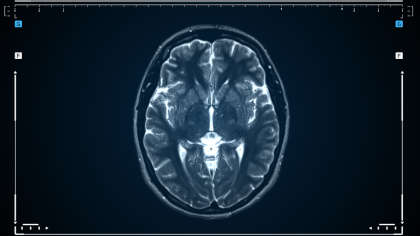
In the world of brain health, there’s a lesser-known condition called autoimmune encephalitis. In this condition, your body’s immune system mistakenly attacks your brain cells. This causes inflammation and a wide range of neurological issues, from memory loss to mood swings. If left untreated, this condition can even lead to death. But, with early diagnosis and treatment, you can recover. In this article, we will discuss autoimmune encephalitis, its symptoms, diagnosis, treatment, and much more.
Get Your IVIG Dose – At-Home Infusion
What Is Autoimmune Encephalitis?
Autoimmune encephalitis is a group of disorders in which the body’s immune system mistakenly attacks healthy brain cells. This causes inflammation in the brain which disrupts the brain’s normal function and leads to a wide range of neurological symptoms.
In the past, this condition was thought to be rare, but now it is being diagnosed more frequently thanks to improvements in medical techniques. A recent study found that approximately 13.7 cases occur per 100,000 people [1]. Also, this disease is more common in females than in men.
Without treatment, this condition can quickly become serious. It can possibly lead to coma or permanent brain damage. In rare cases, it can cause death. So, early diagnosis and treatment are crucial for proper recovery.
Symptoms of Autoimmune Encephalitis
Autoimmune encephalitis can cause a variety of signs and symptoms. Early symptoms of this disease appear within a few weeks to 3 months [3]. They include symptoms like headache, fever, and memory loss. The later symptoms can be more severe. They include symptoms like impaired consciousness, hallucinations, and personality changes.
Here are some other common symptoms:
- Memory problems, confusion, difficulty concentrating
- Hallucinations, delusions, paranoia, mood swings, anxiety
- Seizures
- Abnormal and involuntary movement
- Speech and language difficulties, such as difficulty finding words or trouble understanding language
- Drowsiness
- Insomnia
- Weakness or numbness
- Headache
Please consult your doctor if you are experiencing any symptoms mentioned above for proper diagnosis and management.
What Causes Autoimmune Encephalitis?
Autoimmune encephalitis is a complex disorder. What exactly causes this condition is not always clear. A wide range of factors can cause this condition:
- In many cases, for unknown reasons, your immune system can produce antibodies that target your brain cells. This can lead to autoimmune encephalitis.
- Certain bacteria and viruses like HSV (herpes simplex virus) or streptococcus can trigger an immune response that mistakenly targets brain cells [3]. This can also lead to autoimmune encephalitis.
- Certain tumors like teratoma (ovarian tumor) can trigger an immune response that targets brain cells.
- Rarely, there may be genetic factors that contribute to the development of this condition [4].
- Certain environmental factors, like exposure to certain toxins or chemicals, may play a role in triggering autoimmune responses [5].
Can IVIG help? | Free IVIG Treatment Info
Diagnosis

Autoimmune encephalitis is difficult to diagnose, and often it is misdiagnosed. Research suggests that up to 72% of cases may be initially misdiagnosed [6]. The reason for this is that doctors consider autoimmune encephalitis as rare, and they mistake it for some other illness.
Early diagnosis is very crucial for this condition. If left untreated for a long time, it can be fatal. The diagnosis includes the following:
Clinical Evaluation: Doctors will examine your medical history and symptoms. If they suspect you have this condition, they will conduct further medical tests.
Blood Test: Doctors conduct blood tests to see if your blood contains any inflammatory markers or antibodies associated with autoimmune encephalitis.
Lumbar Puncture: A lumbar puncture or spinal tap is performed to withdraw a sample of your cerebrospinal fluid. This sample is then analyzed for signs of inflammation and antibodies.
MRI Scan: Doctors perform MRI scans of your brain to look for signs that indicate this condition.
Autoantibody Testing: Some specialized tests are performed to detect the presence of autoantibodies associated with autoimmune encephalitis.
Treatment
For autoimmune encephalitis, early treatment is crucial. Early treatment can make a big difference in reducing your symptoms and preventing long-term complications. The treatment you’ll receive will depend on your specific symptoms, disease severity, underlying causes, and response to therapy. In general, the treatment of autoimmune encephalitis includes:
Steroids: These are anti-inflammatory medications that can reduce the immune system’s response and brain inflammation.
Intravenous Immunoglobulin (IVIG): IVIG contains antibodies obtained from the plasma of healthy donors. It works by destroying harmful antibodies, which in turn helps to decrease inflammation in the body.
Plasma Exchange: In this procedure, your blood plasma is replaced with a healthy donor’s plasma. This helps to get rid of harmful antibodies.
Immunosuppressive Medications: These medicines are used to suppress the immune system’s activity and prevent further attacks on the brain.
Surgery: If a tumor causes your condition, then your doctor will perform surgery to remove it.
Pain and Seizure Management: Doctors will recommend medications to control seizures and manage your pain.
Physical Therapy: Doctors may recommend physical therapy. It can help improve your motor skills, communication, and overall functioning.
Get IVIG Copay Assistance – Speak to a Specialist
FAQs
1. Can Autoimmune Encephalitis Be Cured?
In some cases, it can be cured with proper treatment. The recovery depends on several factors, including one’s underlying cause, severity of the symptoms, and response to treatment. Some people recover quickly within months of starting treatment. For others, recovery may take years [7].
2. Can Autoimmune Encephalitis Recur?
Yes. Autoimmune encephalitis can recur after successful treatment. So, close monitoring and follow-up care are important to detect any recurrence early [8].
3. Are There Any Long-Term Effects?
Some people may experience long-term effects even after treatment. Various symptoms may last for many years. These symptoms include seizures, problems with memory and judgment, fatigue, sleep disturbances, depression, and personality changes [9]. You may need ongoing medical care to manage these symptoms and improve your quality of life.
4. Is There Anything I Can Do to Reduce My Risk?
The exact cause of autoimmune encephalitis is not always clear. Still, there are some steps you can follow to reduce your risk. You should maintain overall good health, avoid known triggers such as certain infections or toxins, and seek immediate medical help if you notice any neurological symptoms.
REFERENCES:
- Dubey, D., Pittock, S. J., Kelly, C., McKeon, A., López-Chiriboga, A. S., Lennon, V. A., Gadoth, A., Smith, C. Y., Bryant, S. C., Klein, C. J., Aksamit, A. J., Toledano, M., Boeve, B. F., Tillema, J. M., & Flanagan, E. P. (2018). Autoimmune encephalitis epidemiology and a comparison to infectious encephalitis. Annals of Neurology, 83(1), 166–177. https://doi.org/10.1002/ana.25131
- Gole, S., & Anand, A. (2023, January 2). Autoimmune encephalitis. StatPearls – NCBI Bookshelf. https://www.ncbi.nlm.nih.gov/books/NBK578203/
- Patel, Arpan, et al. “Autoimmune Encephalitis: A Physician’s Guide to the Clinical Spectrum Diagnosis and Management.” Brain Sciences, vol. 12, no. 9, 25 Aug. 2022, p. 1130, https://doi.org/10.3390/brainsci12091130.
- Bien, C. G. (2019). Diagnosing autoimmune encephalitis based on clinical features and autoantibody findings. Expert Review of Clinical Immunology, 15(5), 511–527. https://doi.org/10.1080/1744666x.2019.1573676
- Kharrazian, Datis. “Exposure to Environmental Toxins and Autoimmune Conditions.” Integrative Medicine: A Clinician’s Journal, vol. 20, no. 2, 1 Apr. 2021, pp. 20–24, www.ncbi.nlm.nih.gov/pmc/articles/PMC8325494/.
- Flanagan, E. P., Geschwind, M. D., López-Chiriboga, A. S., Blackburn, K. W., Turaga, S., Binks, S., Zitser, J., Gelfand, J. M., Day, G. S., Dunham, S. R., Rodenbeck, S., Clardy, S., Solomon, A., Pittock, S. J., McKeon, A., Dubey, D., Ζεκερίδου, Α., Toledano, M., Turner, L. E., . . . Irani, S. (2023). Autoimmune encephalitis misdiagnosis in adults. JAMA Neurology, 80(1), 30. https://doi.org/10.1001/jamaneurol.2022.4251
- Autoimmune Encephalitis Recovery | AE Alliance. (2021, May 28). Autoimmune Encephalitis Alliance. https://aealliance.org/patient-support/recovery/
- Lancaster, Eric. “The Diagnosis and Treatment of Autoimmune Encephalitis.” Journal of Clinical Neurology, vol. 12, no. 1, 2016, p. 1, www.ncbi.nlm.nih.gov/pmc/articles/PMC4712273/, https://doi.org/10.3988/jcn.2016.12.1.1.
- Yokota, Yuki, et al. “Long-Term Outcomes and Health-Related Quality of Life in Patients with Autoimmune Encephalitis: An Observational Study.” Medicine, vol. 102, no. 40, 6 Oct. 2023, pp. e35162–e35162, www.ncbi.nlm.nih.gov/pmc/articles/PMC10553085/, https://doi.org/10.1097/md.0000000000035162. Accessed 3 Dec. 2023.













